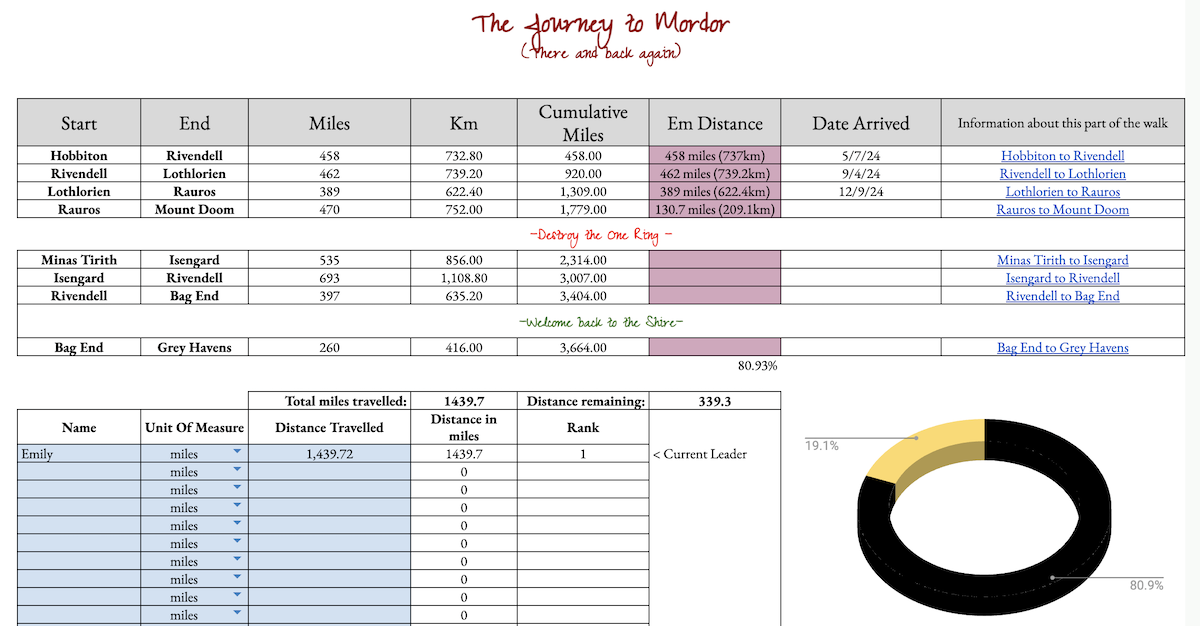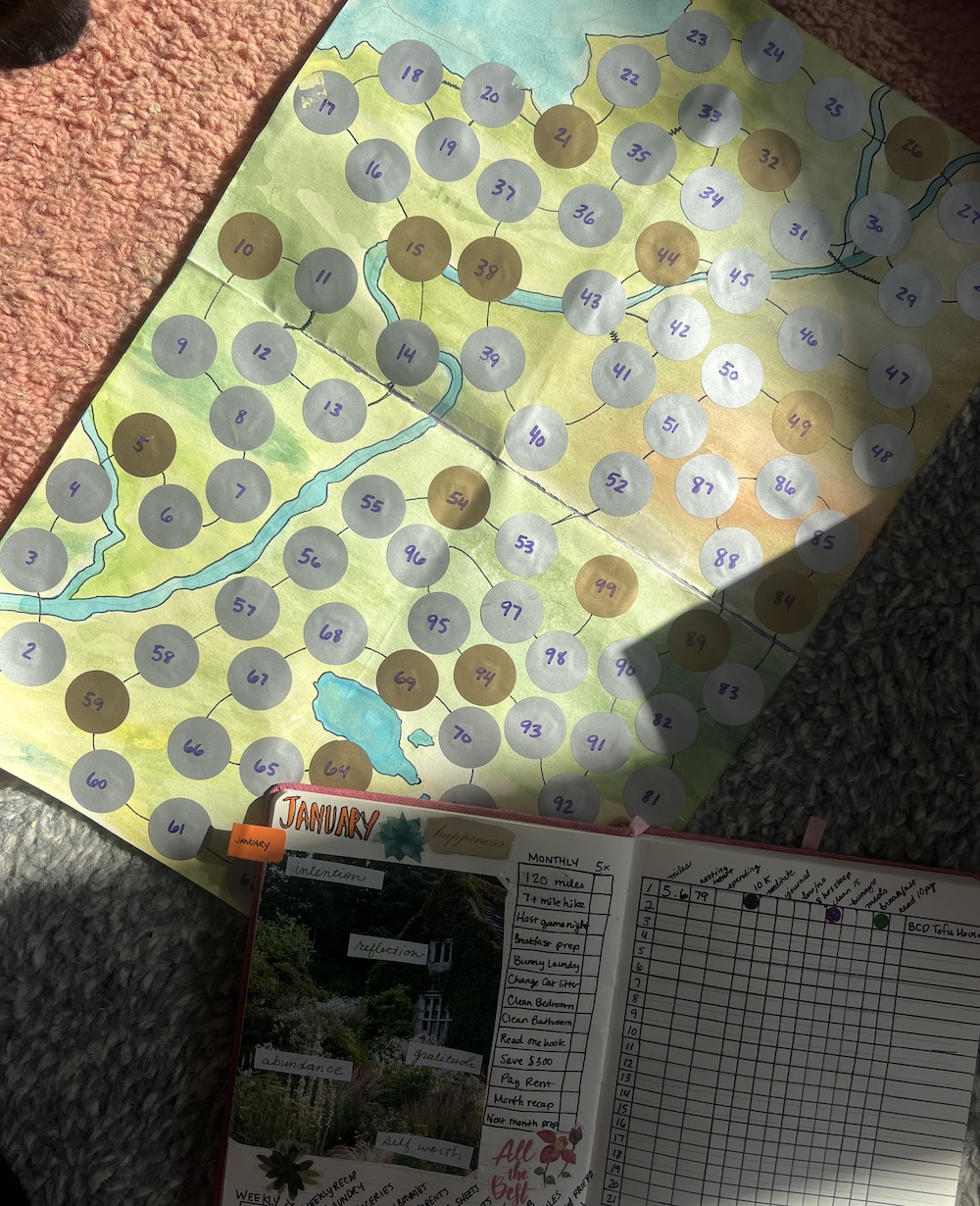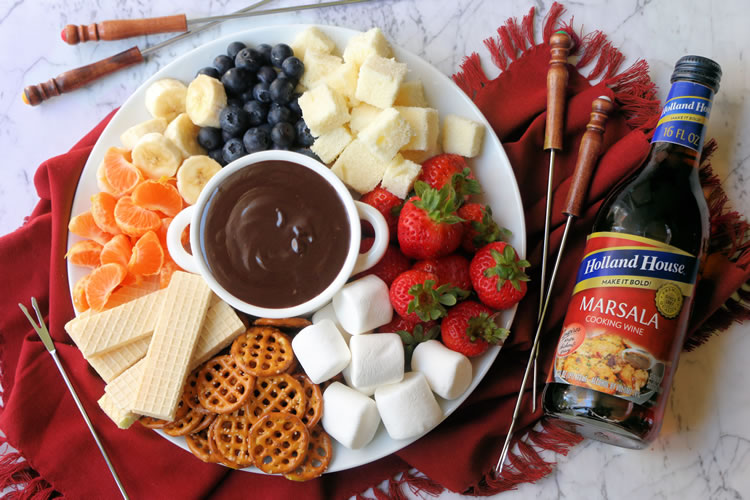Each new year, I face the intimidating and exciting prospect of becoming someone who is productive, proactive, and organized. I’m full of good intentions, fresh with new energy ready to take on the “new me”. But to be honest, after a couple decades, I have only a handful of successes to point to.
The turning point was last January, when I decided to embark on a “trip to Mordor” — a 1,779-mile walking challenge I found online that takes you through the same journey Sam and Frodo took in order to destroy the ring of power. (Yes, this is Lord Of The Rings). If you choose to go “there and back again,” as well as all the way to Grey Havens, the journey totals 3,664 miles. Along the way, it provides a list of links that outline where I’m at in the journey, who I’m meeting, and what I’m seeing.
Basically, I turned the steps I take each day into a game. And guess what? It worked.
It worked better than I had anticipated.
Because what happened next was nothing like I’d ever known myself capable of — I was so excited about tracking my daily miles that I became uncharacteristically consistent. But once this basic (and entertaining) habit formed, I began to habit-stack daily metrics like when I journaled, cleaned for at least 15 minutes, or meditated.

Eventually I started tracking things like my mood, my amount of sleep, and even my resting heart rate. (Which, as an aside, is how I discovered a prescription I had been taking was increasing my resting heart rate to levels I didn’t feel comfortable with, so I chatted with my doctor and went off that medication.)
Over the past year, I’ve found myself more motivated to move my body, nourish it as well as I can, and explore new ways to understand my own wellness journey. And this isn’t an isolated experiment — making daily tasks and chores into something more entertaining can help some folks who struggle with executive function. (Like me!) I take great inspiration from my friends who are dungeon masters of their local Dungeons and Dragons groups — they create a whole world, including rules, storylines, and expansive character possibilities. This isn’t far from what real life is like; we all have our own worlds. So how do you turn daily life into a game, without investing everything you are into the gamification of it all?
“Making daily tasks and chores into something more entertaining can help some folks who struggle with executive function. (Like me!)”
Start with a personal quest log
What is it that you want to do on a daily, weekly, monthly, or quarterly basis? List out all of your recurring tasks and categorize them based on frequency. From there, make an additional list of one-time to-dos. For me, some of those tasks looks like this:
- Daily: Take my vitamins, meditate, start the day with breakfast, walk 10,000 steps
- Weekly: Take a yoga class, change my bedsheets, meal prep lunches
- Monthly: Read one book, host a game night, meal prep my breakfasts
- Quarterly: Deep clean my refrigerator, complete one craft project, add a certain amount to my savings 🤑
- One-off: Drop off my clothing donations, paint the bedroom, get my dishwasher fixed
While I keep longer term goals in mind, I try to avoid a yearly task or goal list, because I want all my smaller goals to help me grow in the direction I want. The yearly recap and evaluation comes later. For now, I’m focusing on the smaller (or small-ish) goals that can help me feel comfortable building larger ones. Ultimately, each task should be a foundational element of a larger goal, even if it’s your general wellness or something a little more abstract.
Then create a points system
Once you have your tasks written out, determine what each one will be worth. (Don’t worry, we’ll get to the rewards in the next section). Here’s how I break down mine:
- Daily: 1 point
- Weekly: 2 points
- Monthly: 5 points
- Quarterly: 10 points
- One-off: 15–25 points depending on how complicated
I like to think of this as a Pokémon experience points system, where you evolve once you’ve reached a certain level. Your system might have different values or units of measurement, but ultimately you’ll know what’s right for yourself. Some folks even create level systems for each category of their lives; this video outlines each section further in detail and I frankly aspire to be this in-depth. It’s a process!
Determine your rewards
While you might find a deep enjoyment in the process of developing this system to begin with (I do), you’ll also want to set up a list of sustainable rewards for yourself to keep you going.
I’ve decided to create a game board for myself — see the picture below — where I get to “unlock” new rewards each time I hit 15 points. Since I work on a quarterly basis, I’ve kept my rewards small and frequent. Small rewards include things like $5–$15 of rule-free spending cash, or a new nail polish. I space out larger rewards each five “levels” I unlock, which gradually get more and more interesting. For example, my big rewards in the near future will be things like having a takeout night or redeeming an affordable concert ticket; later on in the quarter I have rewards like facials, manicures, and even one plane ticket to keep exploring.

Whatever your rewards system, make sure it’s affordable and reasonable for the time period you’ve selected. I reviewed all my rewards for this first quarter and budgeted them up against the rest of my projected spending to make sure I wasn’t promising myself more than I could deliver. And based on how your mind works, you can make the rewards more or less frequent. That’s the best thing about gamifying your life; you can make it whatever you want it to be!
Finally, as someone who thrives on dopamine hits for rewards, I love to add tiny rewards like shiny stickers or color-coded emojis to signify when I’ve successfully completed a task. It’s an affordable way to keep me excited about moving in the right direction. (Oh, and I found some scratch-off stickers that I put over pieces of paper with random rewards listed on them. My inner child is pleased.)
If you need more external motivation and a bit of accountability, you can always check out apps like Habitica, Zombies, Run!, or even Pokémon GO to help keep you excited about your regular goals.
Find your motivation
So you’ve created your whole game for the next few weeks, months, or quarters. How do you keep up the momentum?
First of all, as I’ve noted before, finding a way to habit stack is going to be the most effective way to keep a neurospicy brain like mine coming back to a routine. If I’m immediately bored by the tasks or even the rewards, I’m not going to feel compelled to move forward with my challenges. Yet, if you add a quick Lord of the Rings slant to it all, I’m immersed in a journey my younger self can get happily lost in. And while this journey doesn’t literally happen, I still find myself enthusiastic about checking my progress and moving forward.
It’s also essential to remember that failure won’t be an outcome if you keep going; failure is flexible. Real-life obstacles come into play more often than we’d care to admit. If I find myself tracking something for a month or two and find I haven’t committed to it a single time, that’s when I should reconsider its place on my monthly to-dos. Forcing ourselves to do something that is neither fun, progressive, nor necessary puts us in a difficult and frustrating place. Not because it’s hard or uncomfortable, it’s that we can put so much pressure on ourselves to get it right. And if there’s one thing I’ve learned from open-world RPGs, it’s that there isn’t an actual right way to move through your journey.
“Failure is flexible. Real-life obstacles come into play more often than we’d care to admit.”
At the end of the day, this is only my personal way of making my life into more of a game. You might find other playful ways to engage in the world or get through more mundane tasks like creating a chores bingo, using that D20 dice to determine your next chore, or challenging yourself to competitive time restraints. Having a friend involved can help make things way more fun — trust me! Just be careful to not fall into a comparison trap, since feeling continuously behind a peer can feel demotivating rather that encouraging.
Red flags to avoid
I have to be honest, though, the biggest drawback of gamification is becoming too hard on yourself. Yes, self-discipline is helpful, but if you create a gamified life for yourself and relentlessly track your weight, food intake, or exercise habits? Evaluating these categories can become detrimental if you’re not able to safely track those things for yourself.
Last year, I decided to track my weight each day, yet my daily fluctuations were never up to my standards and I became fixated on weight as a measurement of my progress. It did not work. It felt like I was failing even while I was implementing healthier habits. I wanted so badly to be able to quantify my accomplishments, but I only tracked weight. That’s not an accurate way to measure progress. It is quantitative, for sure, but what about how I felt, how nourished I was, or how excited I was to start my day?
I no longer track my weight, but I’ve transitioned to focusing on how I feel or what self-care I’ve offered myself lately. If you’re dealing with self-image issues, eating disorders, or other harshly self-critical thoughts, I want to remind you that making a game of any of those things may not be not for you.
All of this to say, this is why flexibility is key — if you find yourself not tracking daily runs after a month, maybe that’s not what you need. Try removing that habit from your tracker, or replacing it with something more accessible.
“If you find yourself not tracking a certain habit after a month, maybe that’s not what you need. Try removing that habit from your tracker, or replacing it with something more accessible.”
Today, I’m happy to say I’ve reached 1,445 miles in my walking journey and will, in the next two or three months, make it to my first main destination of destroying the ring.🧙🔥 Currently in my journey, the Battle of Helm’s Deep is raging in the distance and I have just emerged from the Dead Marshes. And that’s a little how I feel after gamifying my life — a battle is raging in my mind, but I’m also moving forward through the mental blocks that have kept me at a standstill for so long.
The biggest fight will always be yet to come, but I am becoming more capable each day.
Emily McGowan is the Editorial Director at The Good Trade. She studied Creative Writing and Business at Indiana University, and has over ten years of experience as a writer and editor in sustainability and lifestyle spaces. Since 2017, she’s been discovering and reviewing the top sustainable home, fashion, beauty, and wellness products so readers can make their most informed decisions. Her editorial work has been recognized by major publications like The New York Times and BBC Worklife. You can usually find her in her colorful Los Angeles apartment journaling, caring for her rabbits and cat, or gaming. Say hi on Instagram!


